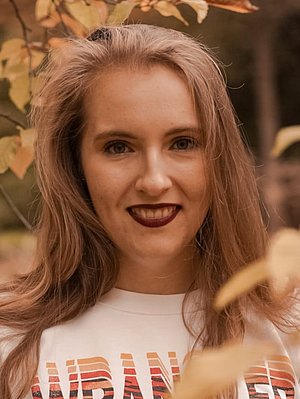Methodological knowledge, also known as the 'thinking behind the doing', is often not given much attention in day-to-day teaching and is only taught implicitly, if at all. (Roberts 2001; Sommer et al. 2022) However, it is essential for planning, conducting, analysing, and reflecting on an experimental investigation, as it contains the knowledge of the individual steps of the scientific method, which is a process for gaining knowledge. (Glaesser et al. 2009) For example, a ‘good’ scientific research question should be precise and describe the objective of the investigation. Many learners are unaware of these characteristics, which is why they struggle to generate research questions and hypotheses and to plan experiments.
To teach this knowledge, I organized a four-day workshop for six upper secondary school students between the ages of 16-18 in the Alfried Krupp School Science Laboratory at the Ruhr-Universität Bochum. In addition to promoting methodological knowledge, the workshop focussed on Solvation Science experiments. All experiments were rather simple in terms of their set-up but were chosen because of their relevance to Solvation Science and everyday life. The workshop thus combined an implicit insight into Solvation Science with the explicit teaching of the more abstract, declarative methodological knowledge.
Unveiling the Fascinating World of Effervescent Tablets: From Research Question to Hypothesis
At the start of the workshop, RESOLV scientist Prof. Dr. Ulf Apfel was invited to give a short interview in which he emphasised the importance of methodological knowledge in the scientific research process. This was followed by an experiment, in which the influence of the solvent on the reaction of an effervescent tablet was investigated. This experiment was chosen because it requires little prior knowledge to generate scientific questions and hypotheses, which the participants can easily investigate and analyse in practice.
Extracting Cocoa Butter from Chocolate: A Guide to Planning and Conducting Experiments
The next steps of the scientific method are planning and carrying out experiments. The second day, therefore, focussed on the preparation of an independent experimental design, in which the students had the goal of extracting cocoa butter from chocolate. The selection of a suitable solvent plays a major role in the extraction process. The experiment provides a learning opportunity regarding the planning of experiments without requiring a large amount of prior knowledge. Additionally, there are several ways to extract cocoa butter, allowing for various possible experimental designs. The participants learnt that methodological knowledge is also required to carry out the experiments in a reproducible manner. For example, they found out that if they plan in advance which glassware they use, there is less variance in implementation and the experiment can be carried out more objectively.
Can we Visualize Proteins? - Observation and Evaluation
On the third day, the participants worked on the photometric analysis of a protein solution using the biuret method. The experiment can demonstrate both direct and indirect forms of observation and, therefore, allows for a more complex evaluation. The participants thereby learnt about the characteristics of observation and evaluation, which are the last two key steps in the scientific method.
Important Roles for our (Research) Life - Water and Variables
The last day of the workshop was dedicated to thoroughly understanding and applying the variable control strategy using the example of the electrolysis of water in Hofmann's water decomposition apparatus. The variable control strategy, along with blind samples, is an important concept in scientific knowledge acquisition, which many learners find challenging to apply (Arnold et al. 2017). The participants analysed the influence of different electrolyte solutions and electrode materials on the reaction. To do this, the participants jointly planned the experiment, carried out the sub-experiments in a division of labour and then jointly evaluated the results. This experiment is particularly suitable for the in-depth application of the variable control strategy, as numerous variables and their influence on the experiment are to be examined.
Overall, it can be said that the participants have recognised the relevance of paying attention to the 'thinking behind the doing' for gaining knowledge, which sometimes takes a back seat in the classroom, as I mentioned in the beginning.
Literature
Arnold, Julia; Kremer, Kerstin; Mayer, Jürgen (2017): Scaffolding beim Forschenden Lernen. In: ZfDN 23 (1), S. 21–37. DOI: 10.1007/s40573-016-0053-0.
Glaesser, Judith; Gott, Richard; Roberts, Ros; Cooper, Barry (2009): Underlying success in open‐ended investigations in science: using qualitative comparative analysis to identify necessary and sufficient conditions. In: Research in Science & Technological Education 27 (1), S. 5–30. DOI: 10.1080/02635140802658784.
Roberts, Ros (2001): Procedural understanding in biology the thinking behind the doing. In: Journal of Biological Education 35 (3), S. 113–117.
Sommer, Katrin; Kring, Petra; Strippel, Christian Georg; Emmerich, Katharina (2022): Teaching and Learning Scientific Inquiry – Step by Step. In: Chemkon 29 (5), S. 375–381. DOI: 10.1002/ckon.202000042.
Strippel, Christian G.; Sommer, Katrin; Kohlbauer, Tom (2017): Forschung trifft Öffentlichkeit. In: Chemie in nserer Zeit 51 (1), S. 58–64. DOI: 10.1002/ciuz.201700783.
-----------------------------------------------------
About the author




